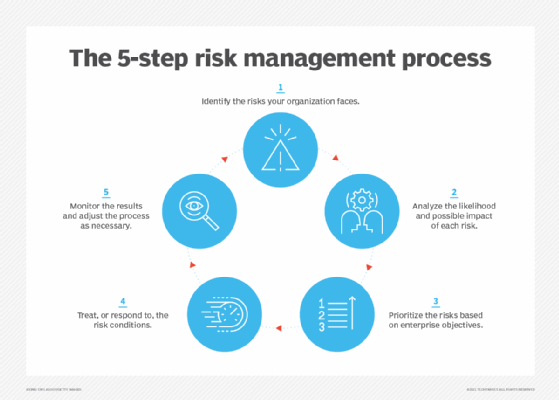The Value of Understanding the Significance of Risk Management in Different Industries

The Core Principle of Risk Management and Its Purpose
Risk Management, the cornerstone of many industries, pivots on the identification, evaluation, and reduction of uncertainties in a business atmosphere. By correctly determining potential threats, organizations can establish techniques to either protect against these risks from occurring or lessen their impact. Once dangers have been identified and examined, the mitigation process includes developing methods to reduce their prospective effect.
Advantages of Applying Risk Management in Company Operations

Introducing the Duty of Risk Management in Different Industries
While every market faces its one-of-a-kind collection of risks, the execution of Risk Management techniques remains a typical in their pursuit of sustainability and growth. In the medical care market, Risk Management entails ensuring individual security and information security, while in financing, it entails mitigating financial investment risks and ensuring regulative conformity (importance of risk management). Building and construction companies concentrate on worker safety and security, project hold-ups, and budget plan overruns. In the innovation industry, companies reduce cybersecurity threats and innovation obsolescence. Eventually, the role of Risk Management throughout industries is to identify, analyze, and minimize risks. It is a crucial part of strategic planning, allowing organizations to safeguard their properties, make the most of chances, and accomplish their goals.
Real-life Instance Researches Demonstrating Effective Risk Management
To recognize the significance of Risk Management in these several industries, one can look to a number of real-life instances that show the effective application of these steps. For circumstances, in the energy sector, British Petroleum created Risk reduction intends post the 2010 Gulf of Mexico oil spill. They carried out better safety and security procedures and stricter policies which substantially lowered additional mishaps. In money, Goldman Sachs successfully browsed the 2008 economic situation by identifying prospective mortgage-backed protections dangers early. Last but not least, Toyota, post the linked here 2011 quake in Japan, changed its supply chain Management to minimize disruption dangers. These situations demonstrate exactly how sectors, picking up from dilemmas, effectively applied Risk Management methods to decrease future threats.
Future Trends and Advancements in Risk Management Methods
As the world continues to advance, so too do the fads and developments in Risk Management approaches. Fast developments in innovation and information analytics are improving the Risk landscape. Huge data and AI are now instrumental in predicting and mitigating risks. Organizations are leveraging these tools to construct anticipating models and make data-driven decisions. Cybersecurity, as soon as a peripheral problem, has actually catapulted to use this link the center of Risk Management, with techniques concentrating on feedback, discovery, and avoidance. The combination of ESG (Environmental, Social, Administration) factors into Risk Management is one more growing trend, reflecting the increasing recognition of the role that social and ecological threats play in service sustainability. Hence, the future of Risk Management hinges on the see here combination of advanced innovation, cutting-edge methods, and an alternative strategy.
Final thought
In verdict, comprehending the value of Risk Management across a spectrum of markets is crucial for their longevity and success. Ultimately, successful Risk Management adds to much more resistant and sustainable businesses, highlighting the significance of this practice in today's highly competitive and vibrant company atmosphere.
While every sector faces its distinct collection of threats, the execution of Risk Management approaches remains a typical denominator in their quest of sustainability and development. In the health care sector, Risk Management involves guaranteeing individual security and data defense, while in money, it includes mitigating investment risks and making sure governing compliance. Inevitably, the role of Risk Management throughout industries is to recognize, analyze, and alleviate dangers. These situations demonstrate how markets, learning from situations, properly applied Risk Management methods to decrease future threats.
